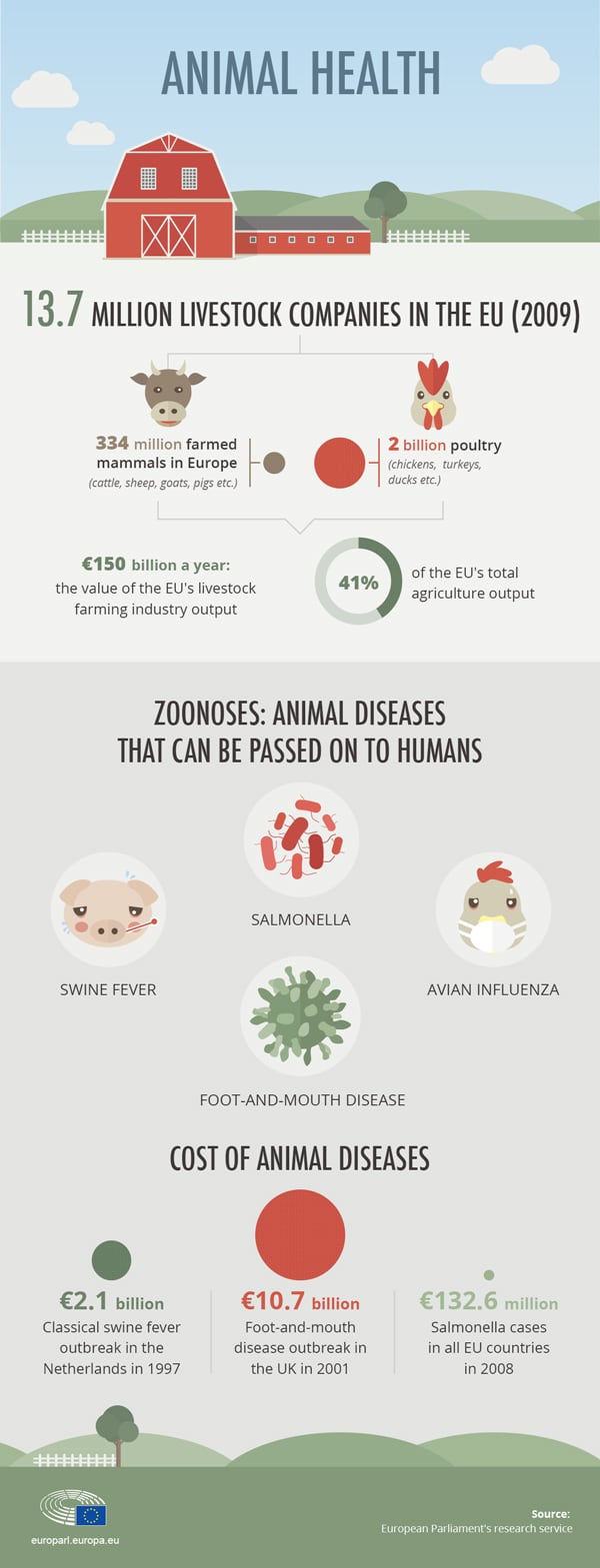With the value of livestock farming output in the EU estimated to be worth €156bn ($171bn) a year, the EU has drafted a new statute which incorporates more than 40 existing animal health laws. The new bill will be known simply as the Animal Health Law. This came about after a group of European politicians informally agreed to a new law on how the continent would handle animal disease outbreaks in June 2015.
The decision was backed this week by the EU’s agriculture committee, and the completed draft proposal gives the EU strength to take emergency action immediately on international animal disease emergencies.
Fight antimicrobial resistance
“The adoption of the Animal Health Law is a great victory,” said Agriculture and Rural Development rapporteur Jasenko Selimovic in a statement.
“This law makes three things possible. First, it links animal health and welfare and connects it to human health. This direct link, together with emphasis on responsible use of antibiotics, will help us fight growing antimicrobial resistance. Second, it enables the authorities and producers to focus more closely on prevention and control of transmissible animal diseases. And third, it merges around 40 legal acts into one basic act.”
Animal welfare consideration
It puts a great emphasis on the prevention of animal disease, with all farmers, food animal owners and livestock traders expected to adhere to good animal husbandry principles and a considered use of antibiotics.
If a disease outbreak does result in the necessary slaughter of livestock, the draft law says disease control measures have to take animal welfare issues into account, to spare animals avoidable pain and suffering.
The text of the draft proposal was agreed unanimously by the agriculture committee with 41 votes, but the European Council at large is yet to agree on it. A hearing at Strasbourg is expected between 7-10 March where a second reading of the draft bill will be made. If there are no stumbling blocks to the bill, the European Council will put ink to the statute and will enter it into force.

